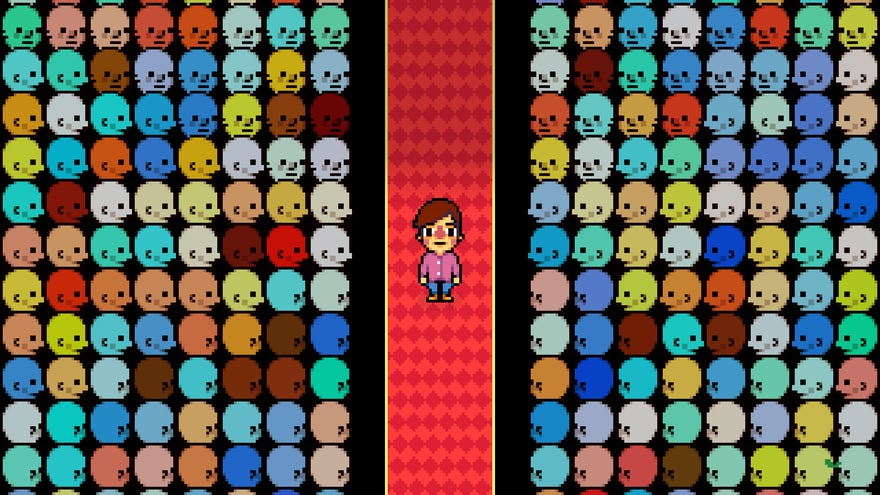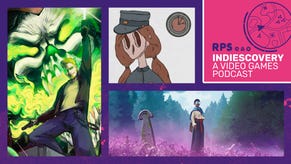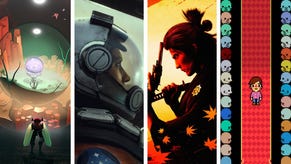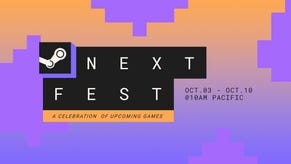Knuckle Sandwich review: a turn-based RPG that's a little too random
Might make you eat your fist
Made by solo dev Andy Brophy, Knuckle Sandwich is a turn-based RPG that's about guiding a bloke through an island paradise and eventually uncovering some weird mystery. Its main hook? Turn-based battles are filled with WarioWare-style minigames, many of which are unique to the kooky residents or rats you come up against. Unfortunately, I'd say its main hook is actually its most painful barb, and one you're barely able to extract by flicking some switches in the settings menu. A shame then, as exploring its strange world and absorbing its bonkers story beats is a wonderful thing marred by dire fights.
Knuckle Sandwich is an acid trip in 8-bit form. You're a regular deadbeat dude who travels from a deadbeat town to Bright City in the hopes you'll get swallowed up by employers there. After some brief, slightly disconcerting trial stints, you secure a job at the rundown Gorilla Burger. What follows is a fight while taking out the trash, resulting in a dead thug. What results from that... is some dubious meat being served to customers. What follows that is a purple guy who calls you "mate", turning up in an alternate reality and explaining his position as a member of Goblin Corp. There is, it turns out, a gang in Bright City who threatens the fabric of reality and escaped goblins have something to do with it all. It's immediately compelling because of the bonkersness, and it's all told from a point of view reminiscent of Earthbound and Undertale, where sinister undertones give way to a deeper human message.
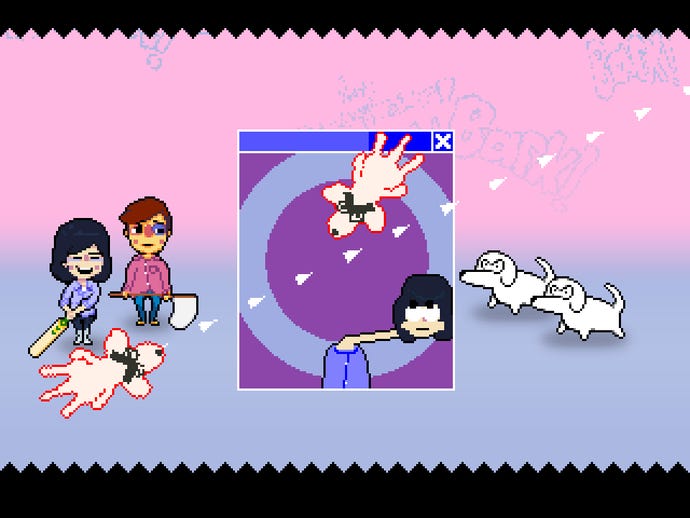
When given some room to breathe and explore Bright City, my frustrations with the fights fizzle away for a bit. While each portion of the city isn't massive, they're home to quirky residents, funky shops, and weird chats that might offer insights into how each neighbourhood's getting on. Sometimes, you pop into a house and there's a lovely guy who expresses how he enjoys his job as a miner. A security official might warn you to stay away from the Rat Lord's house. Kids having a picnic might debate the origins of brie. While I wouldn't say there's a tremendous amount of backstory to any of these characters or Bright City itself, it's still a joy to wander about such a colourful place and constantly brush up against the unexpected.
Lots of little details help bring Bright City to life, too. I like the "schhh" of automatic doors as they slide open, or the way birds hop around and flap off as you approach. You save your game at washing machines - glad to see the telephone snubbed for once - and at each one there's a tidbit of text on its current wash cycle, which might chop and change depending on the environment (top of the line features are available at Mr. Apricot's luxurious resort).
And Brophy flexes these design muscles during story beats to, frankly, staggering effect. Where some games of a similar ilk might get comfortable with the tricks they use to push the story forwards i.e., a fade to black, or the camera following a character as they barge into the room, Brophy ups the ante with the slickest transitions. You might flash from present to future in one snap, the background shifting in an instant as your character seemingly slots into a cutout of their silhouette. Dreams of a mundane routine might transform the entire game into an 8-bit minigame, then things will relax as the focus shifts entirely to more detailed close-ups of you and your goblin friend. All of it furthers Bright City's penchant for the abnormal in really creative ways.
It's a shame, then, that the story's unexpectedness makes the game's pacing a bit of a mare. Sections of blissful exploration are few and far between, with much of your time being taken up either by annoying puzzles where one slip-up means failure, or the most tedious tasks. For instance, the game had me backtrack a couple of floors to fetch a fire extinguisher I'd passed earlier (I thought it was set dressing), purely because a path was ablaze; no twist, no nothing. Another time, I had to find three rooms on a cruise ship and help whoever was in them. One guy wanted a treat from the dining hall, so I had to run off, get it, run back, then that was it. Later, on an deserted island I had to backtrack again and find several pallets to build a raft. Come on, man.
Off the back of the puzzles and tasks, you'll suddenly be thrown into back-to-back boss fights you're 1) woefully underprepared for and 2) weren't really expecting because either the character's barely been introduced, or it's the game's attempt at being funny by crashing them into view. For these reasons I felt many of the toughest fights lacked the weight of context. Sure, I can crush a baddie, but I'd feel more if they'd have given me a swirly beforehand you know? Maybe they'd have done that thing where they make a little circle with their fingers, coerce you into looking at it, then say, "hah! I made you look!".
Tackling baddies is a turn-based affair, except instead of pressing the attack button and watching your sprite rock forwards to deal damage, you time your button-presses to align with knobs on a track, a bit like when you take a swing in a golf game. When it comes to skills, your performance in Wario Ware-style minigames often dictates how effective they might be. The same goes for when enemies attack you, too. Beat their minigames and you can counterattack for free, or time your dodge when they opt for a more basic swing and you'll emerge without a scratch.
Timing your presses for basic attacks is supremely satisfying, and it's neat how the Attack Track™ can switch between horizontal, loopy, or vertical to keep things interesting. And the array of minigames on offer aren't only themed well for each enemy - many are bespoke - they're often a solid mixture of funny and intense. A rat king had me scurrying out the way of his loyal minions. I've had to direct a bendy arm and hand to clutch a falling egg at just the right time. I've driven a car, avoided UFO catchers, jumped over rain clouds.
I've also nearly broken down in tears. You see, the game's numbers aren't balanced properly, so when Knuckle Sandwich has forced into fights with enemies in narrow corridors or shoved into bosses, I've wanted to hurl myself into a wall. There's none of the gradual ramp you'd get from other RPGs, where the numbers you output mark up nicely against those you receive as levels increase. Knuckle Sandwich's difficulty ramp is, it seems, more of a random slalom.
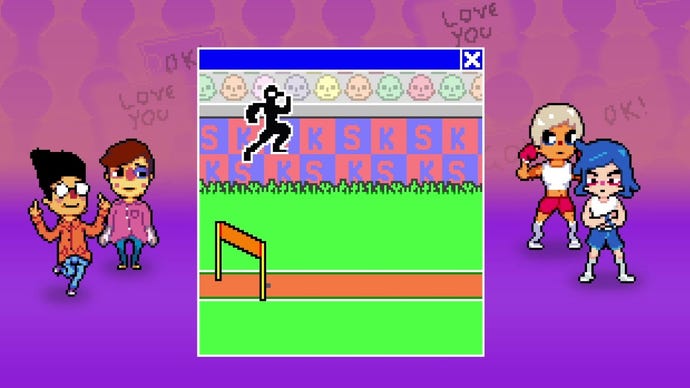
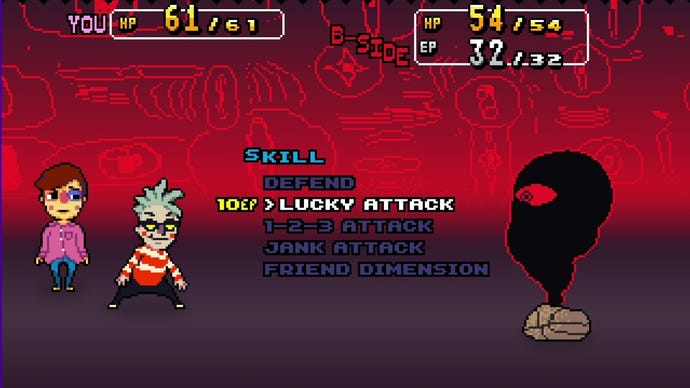
Against even the smallest critter I might poop out a measly seven damage with my basic attacks, and do this repeatedly over the course of several turns. I might use a skill that drains my EP, only for it to do less damage or miss entirely. All the while I dodge and complete minigames perfectly, which could either nullify damage or deal loads. I might hit 36 or 48 off these counterattacks! Then I might mess up one (1) counterattacking minigame, take 66 damage, and die. I might return to battle having equipped a knife to up my damage by +15, only for my basic attacks to hit just as hard as before. The lack of consistency is infuriating.
Perhaps the only consistent thing is feeling like most fights, especially boss fights, outstay their welcome. Many boss battles fall into being story beats at the same time, with jokey chats and power ups activating as you chip their health down. What this means is a nagging sense of "I have to go through the exact same fight if I lose", enhanced by sadness as your measly reps of 16 damage barely chip into their enormous health pools. Yes, counterattacks deal a lot more, but this only serves to put you off basic attacks and skills. Why bother landing your hits when beating an enemy's minigame deals four to five times more than what you're capable of?
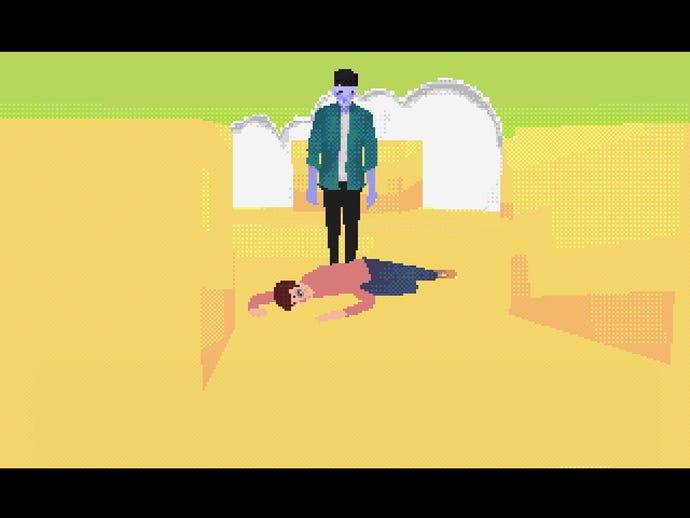
And as fights and the threat of more fights marches on, my gripes with the numbers combine with the minigames themselves: not only do your attacks barely scratch some enemies, each minigame elongates the suffering. Yes, they introduce some variety and ramp up in difficulty as fights go on, turning them into bespoke survival challenges. But man, when you're stuck in a boss fight for 20-minutes hammering out timed button-presses for the tiniest of alms, then get blown to shreds by one mistimed counterattack, it's very hard to not lose your cool. The same rings true as you tackle less important fights.
The settings menu can alleviate much of the pain, as you're able to tweak whether you even bother with the basic attacks minigames, how easy each minigame is, how much damage you take, and auto healing before battle. The holy grail, though? The option to skip battles entirely. Even after lowering the difficulty I skip almost every fight, as more generous numbers still don't make for a battle system that's actually fun in the long run.
It's a real shame that Knuckle Sandwich's combat is beyond frustrating, because it's a huge part of uncovering the mysteries lurking within Bright City. If it gets rebalanced later down the line, then it would undo a lot of why I'd hesitate to recommend the game right now. I simply don't think the kooky residents and wonderful visuals can make up for fights that'll raise your blood pressure to dangerous levels. Here's hoping things change.
This review was based on a retail build of the game provided by the publisher.
